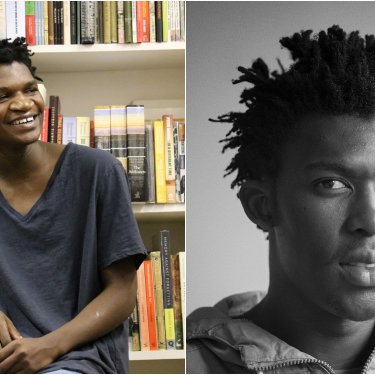Eswatini: Two journalists tortured by security forces

Amid pro-democracy demonstrations in the kingdom over the past two weeks, journalists for a South African media organisation were arrested, detained and tortured by members of security forces. Reporters Without Borders (RSF) strongly condemns these repressive methods and expresses grave concern for journalists and media organisations working in the country.
Journalists Magnificent Mndebele of South Africa and Cebelihle Mbuyisa of Eswatini suffered torture by suffocation at the hands of security forces. On assignment for online news site New Frame, the journalists were covering the pro-democracy movement gripping the kingdom.
Investigating the killing and wounding of numerous people during violent repression of demonstrations since 26 June, the two reporters were returning on 4 July from the funeral of the one of the victims when they were arrested and threatened at gunpoint by police at a roadblock. They were taken to a police station in Sigodvweni, in the centre of the kingdom, where they were interrogated and beaten. Police also tortured them by placing plastic bags over their heads to suffocate them. The journalists were freed after lawyers for New Frame, learning of their detention, sought help from colleagues based in Eswatini, who obtained their release. Forty-eight hours later, the journalists returned to South Africa.
Monica Laganparsad, news editor for New Frame, told RSF that the two journalists are knowledgeable about developments taking place in Africa’s last absolute monarchy, which they cover regularly on the ground. They are among the few foreign journalists who have been able to enter the kingdom. This was the first time they had suffered such mistreatment.
“What security forces did to these two journalists is abominable and criminal,” said Arnaud Froger, head of RSF’s Africa desk. “The mistreatment these two journalists endured occurred in the context of growing repression of press freedom in Eswatini. We call on officials to not resort to predatory methods against journalists and media organisations who are simply bearing witness to the situation in the country.”
The violence inflicted on the two reporters was not an isolated case. Ten days ago, Andile Langwenya of the online Independent News and Wonderboy Dlamini, of government media organisation Swazi Observer, were hospitalised after being targeted by tear gas fired by security forces during demonstrations.
Stepped-up attacks on the press, coupled with a recent internet blackout ordered by authorities, are only increasing difficulties that journalists face while doing their jobs in Eswatini. Zweli Martin Dlamini, editor in chief of the Swaziland News newspaper, told RSF that he had been repeatedly persecuted by authorities over the course of his career. He was forced into exile in South Africa in 2020, as RSF reported, after receiving death threats from Princess Sikhanyiso, daughter of King Mswati III, and being tortured by police. Several months ago, the king sued the journalist and his newspaper in the High Court of Mpumalanga in South Africa, seeking to prohibit publication of articles criticizing the monarchy. The court has not yet issued a decision. Eugene Dube, editor in chief of Swati Newsweek, has also been hit by the wave of repression on journalists in Eswatini. In April 2020, he was brutally interrogated after criticizing official handling of the Covid-19 public health crisis. He has been in hiding ever since.
Responding to the increased repression, Golden Maunganidze, journalist and regional governing council chairperson of the Media Institute of Southern Africa (MISA), sent an official letter to the king, expressing concern for the state of press freedom in the country. He urged the monarch to allow reporters Diamini and Dube to return safely to Eswatini. There has been no reply to the letter.
Eswatini ranks 141 of 180 countries in RSF’s 2021 World Press Freedom Index.



